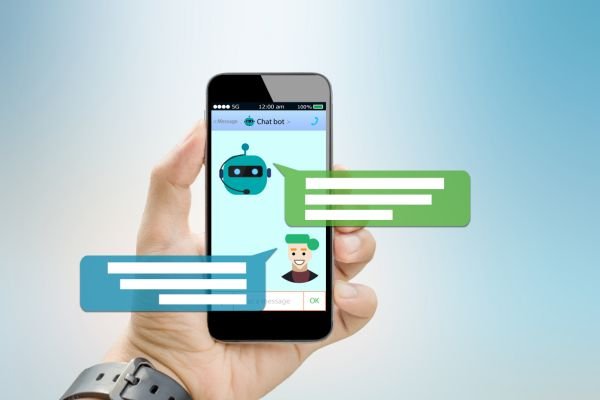How Is AI Shaping The Future Of Digital Marketing?
The fusion of digital marketing and artificial intelligence (AI) is revolutionizing how businesses connect with their audiences. As technology evolves, marketers are adopting tools and strategies that once seemed futuristic. Professionals across content creation, social media, and SEO are moving beyond traditional methods, embracing the possibilities of AI-driven innovation. Among the most significant changes is the adoption of generative AI models like ChatGPT, which have transformed the landscape since their rise in 2023. The synergy between AI and digital marketing is no passing trend—it’s a long-term revolution reshaping industries.
2023 marked the beginning of a new era in this relationship, and 2024 is set to deepen these ties. Businesses that dismiss AI as a fleeting fad must reconsider as this technology becomes an indispensable marketing force.

The Rise of AI Marketing
AI’s influence on marketing continues to grow, signaling a transformative shift in the industry. The internet has evolved dramatically since its inception, and digital marketing has followed suit. Gone are the days of static websites and basic interactions. The rise of AI has propelled marketing into an era where strategies evolve at unprecedented speeds. Tools powered by artificial intelligence now enable marketers to analyze data, anticipate trends, and craft campaigns tailored to their audiences.
However, innovation comes with challenges. The rapid advancement of AI raises concerns about ethics, privacy, and authenticity. As the technology matures, marketers must address these issues alongside its benefits. This exploration delves into the innovations AI is bringing to digital marketing in 2024, highlighting both opportunities and potential pitfalls.
Predictive Analytics
AI-powered predictive analytics is transforming marketing by enabling businesses to anticipate consumer behavior and trends. By analyzing historical data, AI can forecast customer preferences, purchase patterns, and market shifts with remarkable accuracy. This allows marketers to design proactive strategies, ensuring they stay ahead of competitors. Predictive analytics also helps optimize campaign performance by targeting the right audience at the right time, making it a critical tool for modern marketing strategies.
Automation in Campaign Management
AI-driven automation is streamlining marketing processes, making campaign management more efficient than ever. From scheduling social media posts to automating email sequences, AI reduces manual effort, saving time and resources. Additionally, automation ensures consistency across platforms and minimizes errors, enabling marketers to focus on creative and strategic aspects of their campaigns. This integration of automation tools is not only enhancing productivity but also enabling businesses to scale their efforts effortlessly.

Key Innovations in AI-Powered Digital Marketing
Artificial intelligence is transforming the digital marketing landscape, offering groundbreaking tools and strategies that were once unimaginable. From analyzing massive data sets to creating hyper-personalized campaigns, AI has redefined how marketers connect with their audiences. These innovations are not only enhancing efficiency but also reshaping consumer experiences across platforms. However, the rapid adoption of AI brings both opportunities and challenges, requiring marketers to balance technological advancements with ethical considerations. Let’s explore the key innovations driving this transformation and their impact on the future of marketing.
Hyper-Personalization
The demand for more personalized and relevant interactions has reshaped how businesses approach their marketing strategies. AI-driven hyper-personalization enables companies to move beyond generic content and create meaningful connections with their audience.
- Cornerstone of Modern Marketing: Personalization remains a key focus for creating impactful marketing strategies.
- AI’s Role: AI processes vast datasets to craft campaigns tailored to individual preferences.
- Email Campaigns: Enables highly customized email content designed for specific user interests.
- Adaptive Websites: Websites adjust in real-time based on user behavior for a seamless experience.
- Real-Time Adjustments: AI analyzes trends and preferences to deliver relevant content instantly.
- Engagement Boost: Personalized interactions enhance user engagement and foster stronger audience connections.
As consumers increasingly expect tailored experiences, businesses that invest in hyper-personalization stand to gain a significant competitive advantage. This strategy not only improves customer satisfaction but also builds lasting loyalty and trust.
AI-Enhanced Chatbots
As businesses aim to deliver faster and more personalized customer support, AI-enhanced chatbots have emerged as a game-changing solution. These advanced tools are transforming how companies interact with users by providing efficient, intelligent, and dynamic communication.
- Versatile Interactions: Chatbots now handle text, voice, and even visual communications, offering remarkable adaptability.
- Personalized Experiences: By analyzing user behavior, these bots deliver responses tailored to individual needs and preferences.
- Emotional Intelligence: Advanced chatbots can detect emotional cues, allowing them to respond with empathy and understanding.
- Operational Efficiency: Beyond customer service, they streamline processes like scheduling and support tasks, improving overall efficiency.
- Enhanced Engagement: Their ability to provide real-time, contextual solutions elevates user satisfaction and engagement.
As AI technology evolves, chatbots are becoming indispensable tools for businesses, bridging the gap between automation and meaningful customer interactions. They are poised to redefine customer service, making it more efficient, empathetic, and innovative.
Media Creation
The rise of generative AI has revolutionized how content is produced, offering marketers faster and more versatile tools to meet the growing demands of digital audiences. This innovation allows businesses to create high-quality content with efficiency and precision, transforming traditional workflows.
- Text-Based Tools: AI generates polished articles and written content with minimal input, streamlining content creation.
- Visual Content: Platforms like Canva enable marketers to produce customized images tailored to specific marketing needs.
- Video Generation: Emerging AI technologies simplify video creation, making it accessible for diverse campaigns.
- Challenges: Issues like deepfake controversies and authenticity concerns highlight the need for ethical AI usage.
- Creative Transformation: AI redefines workflows, enhancing efficiency while pushing creative boundaries.
Generative AI empowers marketers to deliver engaging, tailored content at scale, reshaping how businesses approach media production while driving innovation across industries.

Balancing Innovation and Ethics
As artificial intelligence continues to reshape the marketing industry, the need for ethical considerations has become more pressing than ever. While AI offers unprecedented advantages—such as personalized campaigns, enhanced efficiency, and dynamic customer interactions—it also raises concerns about data privacy, bias, and overreliance. Striking a balance between innovation and ethics is crucial for maintaining consumer trust and long-term success. Marketers must address issues like algorithmic fairness, transparency in data usage, and the potential for job displacement. By adopting responsible AI practices, businesses can harness the transformative power of this technology while fostering trust and ensuring their strategies align with ethical standards.
Data Privacy
The rise of AI in marketing has amplified the importance of data privacy. AI-powered tools rely on extensive data to deliver personalized experiences, but this has raised concerns about ethical use and protection. Consumers are becoming more aware of how their data is collected, stored, and used, demanding greater transparency from businesses. To maintain trust and avoid reputational or legal consequences, companies must implement robust security measures and ethical practices. Balancing innovation with responsible data handling is essential for sustainable AI-driven marketing.
- Privacy Concerns: AI’s personalization relies on vast amounts of data, raising significant privacy issues.
- Transparency Importance: Clear communication about data practices is essential for trust.
- Security Measures: Robust systems are critical to protect user data and prevent breaches.
Overreliance and Job Impact
The increasing use of AI in marketing brings efficiency but also raises concerns about its broader implications. Overdependence on AI can limit creativity and lead to uniform, less innovative campaigns. Additionally, the automation of routine tasks may reduce the need for human roles, creating concerns about job displacement. Despite these challenges, human creativity remains essential for building emotional connections with audiences. Striking a balance between automation and human input ensures campaigns remain engaging, diverse, and impactful.
- Efficiency vs. Creativity: Excessive reliance on AI tools can stifle innovation and originality.
- Job Displacement: Automation may replace human roles, raising concerns about employment in the industry.
- Human Touch: Emotional resonance and unique storytelling still require human creativity.
- Balanced Strategies: Combining AI efficiencies with human input creates dynamic and engaging campaigns.
Algorithmic Bias
AI algorithms can unintentionally perpetuate biases as they learn from historical data that may reflect societal inequities. This can lead to marketing practices that unintentionally alienate certain groups, undermining inclusivity and fairness. Addressing this issue requires actively monitoring and refining AI systems to minimize biases. Ensuring campaigns represent diverse perspectives and values is critical to maintaining a positive brand image and fostering trust among a wide range of audiences.
Regulatory Challenges
AI’s rapid adoption in marketing is sparking discussions about ethical guidelines and legal standards. Governments and organizations are working to establish frameworks for responsible AI usage. Marketers must stay informed about these evolving regulations to ensure compliance and avoid penalties. Navigating these challenges requires a commitment to ethical practices and sometimes expert legal guidance. Staying proactive in meeting regulatory demands is key to maintaining consumer trust and fostering sustainable innovation.
Customer Skepticism
As AI becomes a bigger part of marketing strategies, consumers are growing more aware of automated content and interactions. This awareness can lead to doubts about authenticity, especially if the experience feels overly mechanical. To address this, brands need to be transparent about their AI use and focus on delivering genuine, relatable content. To navigate these challenges, many brands are turning to consulting agencies that specialize in AI integration and customer experience to ensure their strategies effectively balance automation with authenticity. A balance between automation and human input can help maintain trust and ensure that AI-driven campaigns resonate with audiences effectively.

The Role of Generative AI in Modern Digital Marketing
Generative AI is revolutionizing the way businesses approach digital marketing, offering tools that blend efficiency and creativity. By harnessing the power of AI, marketers can produce content, optimize strategies, and engage with audiences like never before. This shift isn’t just about saving time—it’s about delivering more personalized, impactful experiences at scale. As AI becomes more sophisticated, its applications in marketing continue to expand, enabling brands to connect with consumers in ways that feel innovative and relevant. Let’s explore how generative AI is transforming key aspects of modern digital marketing.
Enhancing Content Creation
Generative AI is revolutionizing content creation by producing high-quality text, images, and videos with minimal effort. Marketers can use AI tools to generate polished articles, dynamic visuals, and even video content tailored to specific audience needs. This not only saves time but also ensures consistency in messaging across platforms. With the growing demand for personalization, AI enables marketers to create content that resonates with diverse consumer preferences. By embracing AI-driven content tools, businesses can stay agile and meet audience expectations while scaling their efforts efficiently.
Driving SEO Optimization
Generative AI is transforming SEO strategies by analyzing consumer behavior and search data to uncover actionable insights. AI tools suggest relevant keywords, optimize content for user intent, and track evolving search trends to ensure higher rankings. Beyond keywords, these tools help marketers improve site structure, enhance metadata, and refine overall website performance. This results in improved online presence and engagement while staying aligned with algorithm updates. Leveraging AI for SEO empowers marketers to build data-driven strategies that consistently outperform competitors.
Revolutionizing Consumer Engagement
Generative AI is reshaping how businesses connect with their audiences through tailored customer interactions. AI-driven chatbots, predictive tools, and personalized campaigns deliver hyper-customized experiences at scale. For example, AI can analyze consumer preferences and provide real-time recommendations, making interactions more engaging and relevant. Additionally, chatbots powered by generative AI offer seamless, empathetic customer support 24/7, enhancing satisfaction. These advancements enable brands to foster loyalty and build deeper connections with their audiences, elevating the overall consumer experience.
Conclusion
AI is undeniably shaping the future of marketing, offering tools and strategies that redefine how businesses connect with their audiences. From predictive analytics and automation to hyper-personalized campaigns, the potential of AI to transform marketing is immense. However, leveraging these advanced technologies effectively requires a strategic approach and an understanding of their limitations. Balancing innovation with ethical considerations, addressing privacy concerns, and maintaining a human touch is crucial for building trust and achieving long-term success.
For businesses looking to stay ahead in this competitive landscape, contacting a professional marketing team can ensure AI is integrated thoughtfully and effectively into their strategies. With expert guidance, companies can navigate through the complexities of AI-driven tools, optimize their marketing efforts, and achieve meaningful results. Embracing AI today isn’t just about keeping up—it’s about leading the way in a rapidly evolving digital world. The future of marketing is here—are you ready?
FAQs
How can small businesses start using AI for marketing?
Small businesses can begin by integrating AI tools like chatbots, content generators, and analytics platforms for cost-effective marketing solutions.
What industries benefit most from AI-driven marketing strategies?
E-commerce, healthcare, and finance heavily benefit from AI by leveraging personalization, predictive analytics, and automated customer interactions to enhance user experience.
Are AI tools expensive for online marketing implementation?
AI tools vary in cost; many offer scalable pricing or free options, making them accessible for businesses of different sizes and budgets.
What is the role of AI in improving customer retention?
AI improves retention by analyzing customer behavior, creating tailored experiences, and providing proactive solutions through chatbots and personalized recommendations.
How can marketers ensure the ethical use of AI in campaigns?
Marketers should prioritize transparency, monitor data biases, and adhere to regulations to maintain ethical standards and build consumer trust.
